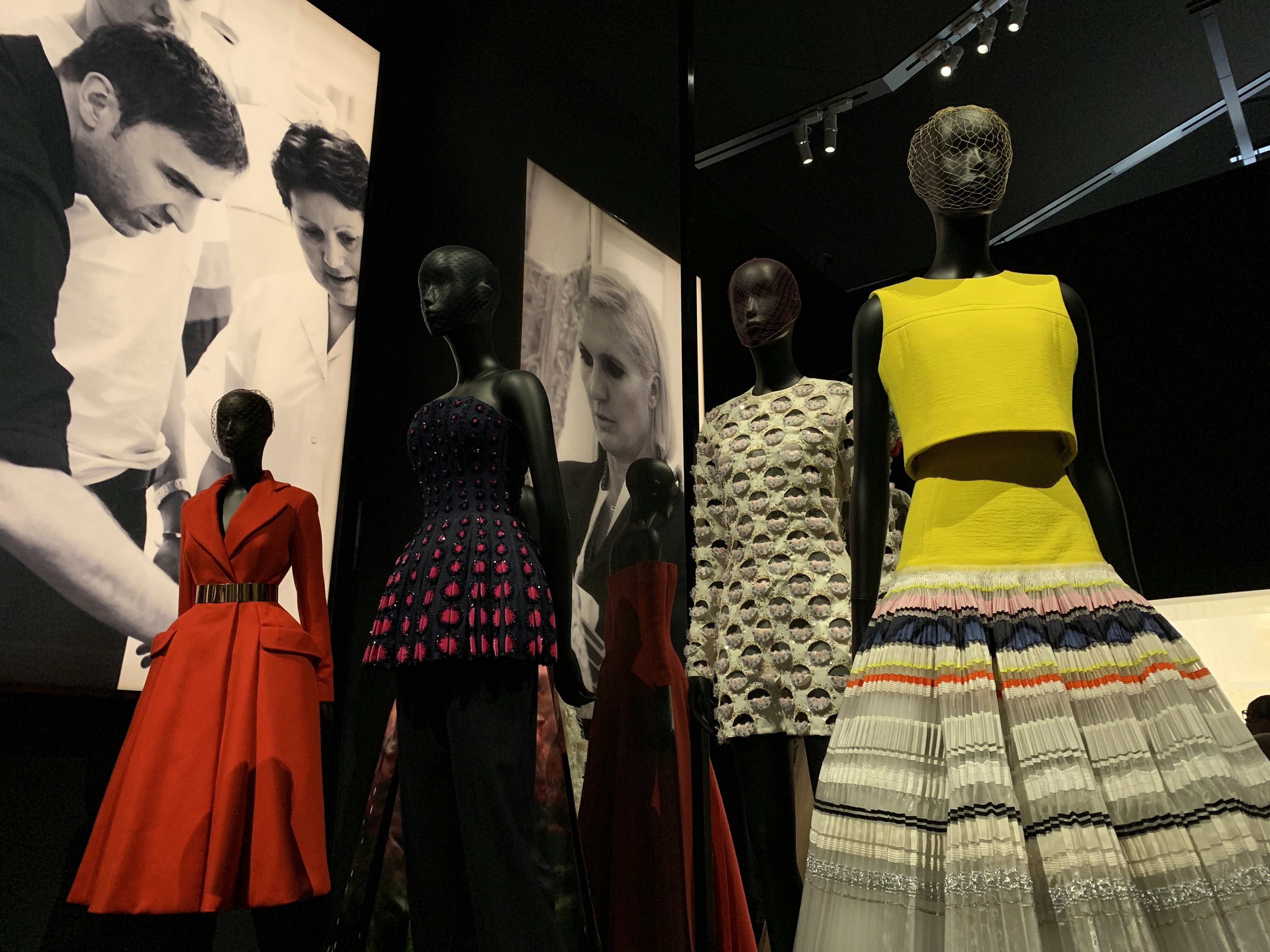
Introduction to Women’s Dress Manufacturing
The world of women’s dress manufacturing is witnessing dynamic transformation, fueled by ever-evolving fashion trends and shifting consumer preferences. In recent years, there has been a pronounced shift towards inclusivity and diversity in styles, with consumers increasingly seeking apparel that reflects their personal identities and values. This trend is not limited to just aesthetics; it also encompasses functionality and comfort, making manufacturers focus on innovative designs that cater to a wide range of body types and lifestyle needs.
Furthermore, the demand for sustainable fashion is at an all-time high, prompting manufacturers to adopt ethical practices in their production processes. Consumers are now placing greater emphasis on the origins of their clothing, leading to a surge in interest towards environmentally friendly materials and transparent supply chains. Fashion brands that wish to thrive in this competitive landscape must prioritize partnerships with manufacturers who emphasize sustainability alongside quality craftsmanship.
As we look ahead to 2025, the importance of selecting the right dress manufacturer becomes even more critical for fashion brands aspiring to make their mark. The right partnership can enhance brand reputation, ensure product quality, and align business practices with the values that resonate with modern shoppers. With consumers increasingly prioritizing brands that demonstrate social responsibility, manufacturers who adhere to ethical practices are likely to stand out in the market. Therefore, understanding current trends, the rising demand for diverse clothing options, and the significance of sustainability will be essential for brands committed to success in this rapidly evolving industry.
Criteria for Selecting Dress Manufacturers
When establishing a partnership with a women’s dress manufacturer, fashion brands must meticulously evaluate several critical criteria to ensure they select the right supplier. These criteria will directly impact both the final product quality and the brand’s reputation in the competitive fashion industry.
The first essential factor is the quality of materials. A high-quality manufacturer will source premium fabrics and materials that align with the brand’s vision and customer expectations. Brands should inquire about the types of fabrics used and assess whether the manufacturer can provide samples to evaluate the quality firsthand. Utilizing superior materials not only enhances the aesthetic appeal of dresses but also contributes to the garment’s longevity and wearability.
Another significant consideration is production capacity. Fashion brands must assess whether the manufacturer can meet their production demands, particularly during peak seasons. A reliable dress manufacturer should possess the ability to scale production up or down according to market trends and client requirements. In this regard, understanding the manufacturer’s lead time and maximum output is paramount to ensure timely deliveries and minimize supply chain disruptions.
Compliance with labor regulations is also crucial. Ethical practices in manufacturing are increasingly important for consumers. Brands should seek manufacturers that adhere to labor laws and maintain safe working conditions for their employees. A comprehensive assessment of the manufacturer’s compliance record can safeguard against associating with those that exploit labor and violate regulations.
Furthermore, sustainability practices are becoming a key criterion as consumers grow more environmentally conscious. Fashion brands should opt for manufacturers that prioritize sustainable practices, including the use of eco-friendly materials and waste reduction strategies in their production processes.
Lastly, the ability of manufacturers to adapt to design changes cannot be overlooked. Fashion is an ever-evolving industry, making flexibility in production a vital trait. Manufacturers should demonstrate an understanding of and responsiveness to design alterations while maintaining high-quality standards.
Top 10 Women’s Dress Manufacturers for 2025
As the fashion industry continues to evolve, the demand for high-quality women’s dresses has prompted several manufacturers to rise to prominence. In 2025, the following ten manufacturers stand out due to their expertise, innovative practices, and collaborations with leading fashion brands.
1. XYZ Fashions – Known for its commitment to sustainability, XYZ Fashions focuses on eco-friendly fabrics and ethical production methods. The manufacturer has partnered with several top designers to create exclusive collections, emphasizing their design aesthetic that blends modernity with classic influences.
2. Elegant Attire Co. – Elegant Attire specializes in luxury dresses that cater to high-end markets. With a rich history dating back to the 1980s, they have established themselves as leaders in bridal and evening wear, often employing artisanal techniques that add intricate detail to each piece.
3. Chic Manufacturing – Embracing technology, Chic Manufacturing utilizes advanced automation and AI to streamline production processes while maintaining quality. This innovative approach has attracted collaborations with several emerging fashion brands, allowing for rapid turnarounds on new styles.
4. Timeless Styles Inc. – Focused on creating timeless designs that transcend trends, Timeless Styles collaborates with both seasoned and new designers. Their philosophy centers on craftsmanship and durability, making their dresses popular among consumers seeking investment pieces.
5. Modern Muse Co. – This manufacturer targets the contemporary market with trendy and playful designs. Modern Muse has garnered attention for its Size Inclusivity initiative, creating stylish options for all body types, thereby enhancing their appeal across diverse consumer segments.
6. Couture Collective – Renowned for haute couture, Couture Collective creates bespoke dresses that showcase unique artistic flair. Their collaborations often result in high-profile runway shows, celebrating diverse interpretations of femininity.
7. Urban Dressmakers – Urban Dressmakers focuses on streetwear-inspired dress designs, merging casual elegance with urban sensibilities. Their sustainable practices include using recycled materials, which are becoming increasingly popular among environmentally conscious consumers.
8. Graceful Moves – This brand specializes in dancewear-inspired dresses designed for flexibility and movement. Graceful Moves integrates performance fabrics that allow ease of movement, catering to active women in various contexts, from casual outings to formal events.
9. Luxe Essentials – Luxe Essentials offers a range of affordable yet stylish dresses, making fashion accessible to a broader audience. Their production model emphasizes quality without compromising on affordability, attracting collaborations with fast fashion brands.
10. Heritage Threads – This manufacturer prides itself on preserving artisanal techniques while integrating contemporary design. Heritage Threads works closely with local artisans to maintain cultural integrity in each dress, appealing to consumers who value authenticity.
These ten manufacturers are not only shaping the landscape of women’s fashion in 2025 but also demonstrating the importance of innovation, collaboration, and sustainability in modern manufacturing practices.
Future Trends in Women’s Dress Manufacturing
The landscape of women’s dress manufacturing is poised for significant transformation as we advance into the coming years. One of the most prominent trends is the rise of digital fashion, which has garnered attention for its potential to revolutionize the traditional manufacturing process. Digital fashion utilizes computer-generated imagery to create virtual garments, enabling designers to showcase their creations without the constraints of physical production. This approach not only reduces waste but also allows for greater experimentation and creativity in design.
Another noteworthy development is the increased focus on sustainable materials. As consumer awareness regarding environmental impact grows, manufacturers are responding by investing in eco-friendly fabrics and processes. Innovations such as biodegradable textiles, recycled materials, and low-impact dyeing techniques are becoming prevalent in women’s dress production. Fashion brands that embrace these sustainable practices can enhance their brand image while catering to a market increasingly driven by ethical considerations.
Artificial intelligence (AI) is also making its mark in the women’s dress manufacturing sector. From predicting fashion trends to optimizing supply chain management, AI technology is streamlining various aspects of the industry. AI algorithms can analyze vast amounts of data to predict consumer preferences, thereby assisting brands in tailoring their offerings more effectively. Moreover, AI-driven automation is aiding in design processes and manufacturing efficiency, ultimately reducing lead times and promoting agility in responding to market changes.
Lastly, the movement towards direct-to-consumer (DTC) models is reshaping the way women’s dresses are marketed and sold. This shift allows brands to establish stronger relationships with their customers while providing personalized shopping experiences. By cutting out intermediaries, manufacturers can offer higher quality products at competitive prices, thereby redefining distribution channels in the industry.
These emerging trends collectively signal a dynamic future for women’s dress manufacturing, shaped by technological advancements and shifting consumer demands.
